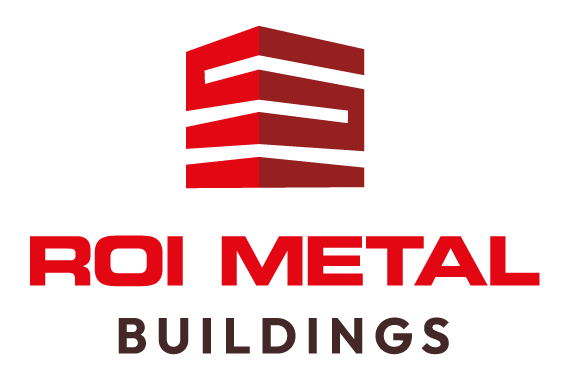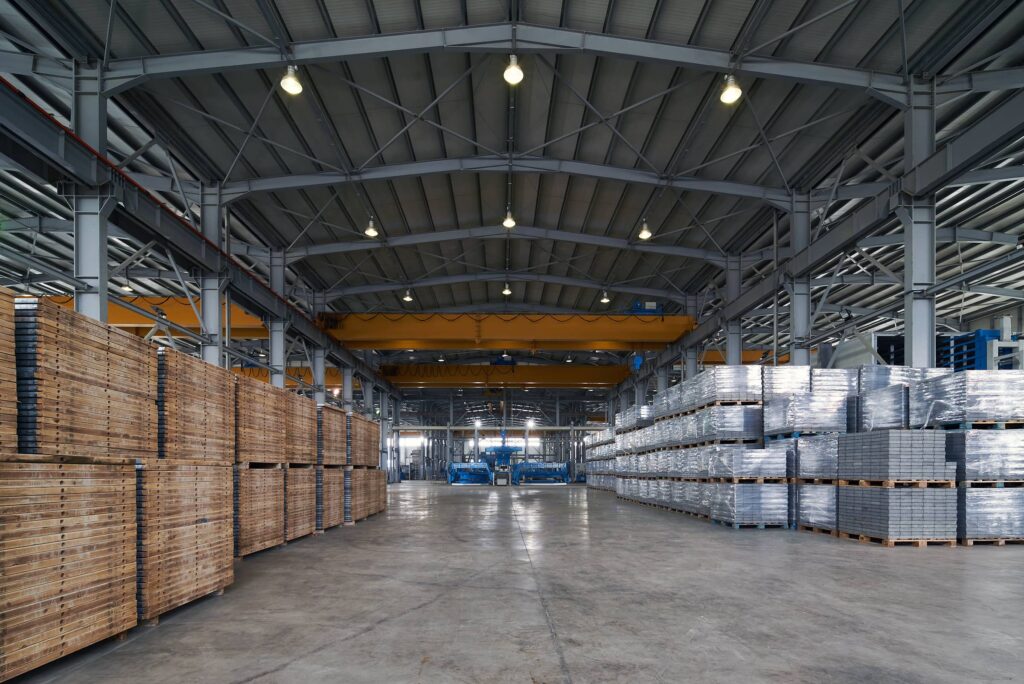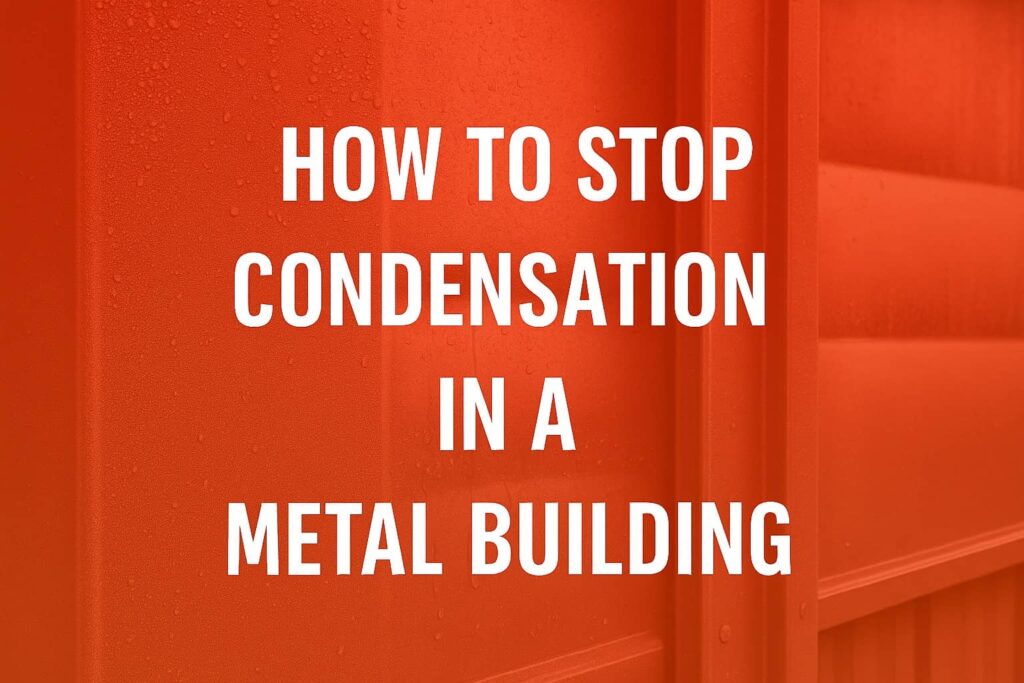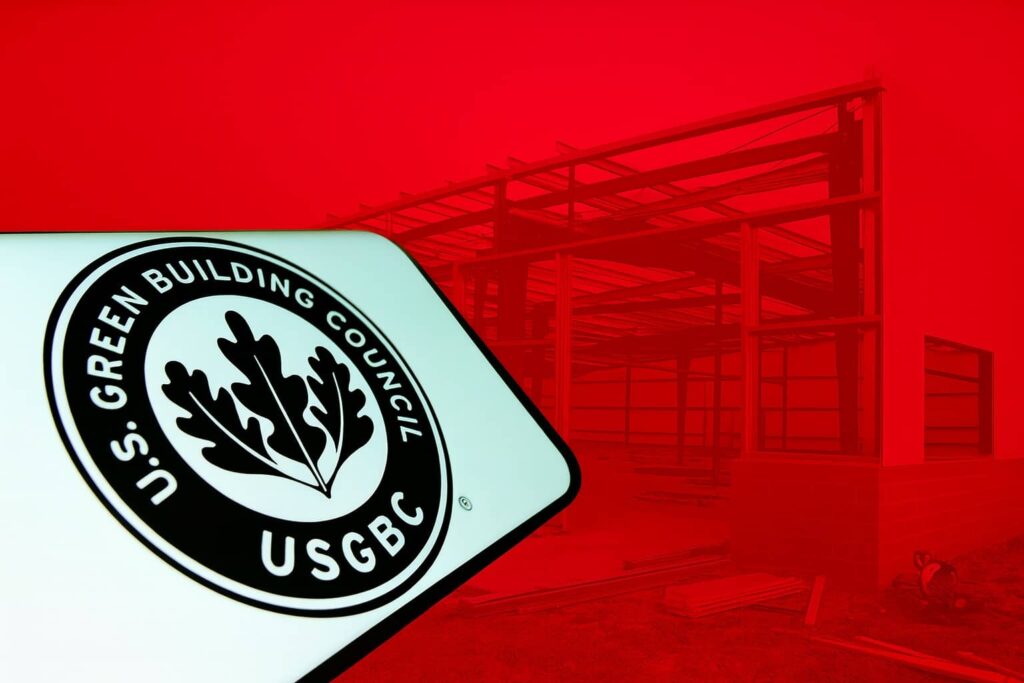FAQs For Choosing the Right Contrator for Your Warehouse Project
Building or renovating a warehouse can feel like navigating a maze, especially when it comes to choosing the right contractor for the job. With so many options out there, how do you ensure you’re picking someone who understands your vision and can deliver on time and within budget? Your choice of contractor can make or break the success of your project, which is why taking the time to evaluate their qualifications and experience is absolutely crucial. Professional associations like the American Institute and the Associated General Contractors play a significant role in recognizing excellence and credibility in the construction industry. Let’s dive into the key steps of How to choose a contractor for a warehouse project.
When choosing a contractor for a warehouse project, it is essential to evaluate their experience and reputation, expertise in warehouse-specific issues, relevant licensing and certifications, and flexibility to adapt to project changes. These factors will help ensure that your project is completed efficiently, within budget, and to high-quality standards.
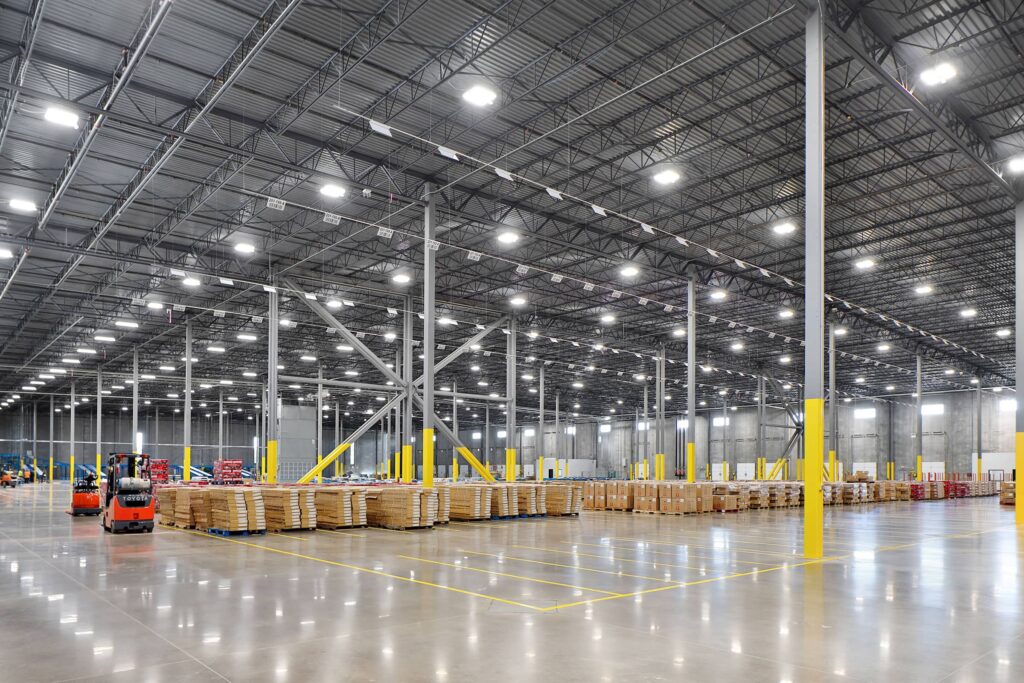
Introduction to Warehouse Construction
Warehouse construction is a complex process that requires careful planning, execution, and management. Partnering with a commercial construction company that specializes in warehouse construction can significantly enhance the likelihood of your project’s success. These companies bring a wealth of experience and expertise to the table, ensuring that the project is completed on time, within budget, and to the highest quality standards.
When working with a general contractor, it’s essential to evaluate their experience, reputation, and past projects. A reputable contractor will have a proven track record of delivering successful projects, which is a strong indicator of their ability to handle the construction process effectively. Their communication skills and ability to work closely with clients are also critical to the project’s success. By choosing a contractor with a solid reputation and extensive experience in warehouse construction, you can be confident that your project will be managed efficiently and meet all your specific needs.
Identify Your Project Needs
As you begin your quest to build a warehouse, start by creating a clear picture of what that warehouse should look like and what it will be used for. This means assessing every aspect of the project meticulously.
When planning a warehouse project, consider key factors such as experience, expertise, and flexibility to ensure successful outcomes in terms of quality, timeline, and budget.
First, define the total square footage required for your warehouse. Are you aiming for something modest at around 10,000 square feet or perhaps a sprawling structure closer to 100,000 square feet? The size directly influences the overall cost and layout possibilities.
Furthermore, think about the type of warehouse you need. Will it function as a distribution center, a manufacturing facility, cold storage for perishable goods, or maybe all three? Each type has its own unique design elements and structural requirements that must be factored in from the start.
It’s also crucial to pinpoint your specific features. Do you need loading docks for easy freight access? How about office spaces integrated within the warehouse or advanced shelving systems tailored for your inventory? Think carefully about these elements because they will affect the design and impact your operational efficiency down the line.
Establishing Budget and Timeline
With specifications in mind, setting a realistic budget range is vital. Whether you’re looking at a total project budget of $500,000 or scaling up to $5 million, having a clear financial framework helps while discussing options with contractors. This figure should encompass all aspects of construction, factoring in materials, labor, permits, and any unforeseen expenses that may arise during development.
Don’t forget about timing. Establish when you want to start and finish the project. A timeline sets expectations and helps keep everyone accountable. Perhaps you’re aiming to begin construction in Q1 of 2025 and wrap things up by Q3; make sure this schedule aligns seamlessly with the contractors you’re considering.
Once you have outlined these core requirements—size, type, special features, budget, and timeline—you create a solid foundation for productive discussions with potential contractors.
It is also crucial to negotiate contract terms after selecting a contractor. This ensures a clear and comprehensive agreement, safeguarding the interests of both parties and contributing to the successful completion of the project.
Having established your specific needs opens the door to effectively communicating those priorities; now, let’s explore how to locate and assess qualified constructors who can turn your plans into reality.
Research Potential Contractors
Start by checking the credentials of each contractor on your list. This is more than just a quick Google search; you want to ensure that they are properly licensed, insured, and have the right experience for your warehouse project. In many states, having the appropriate licenses signifies that a contractor has met specific standards and possesses the necessary knowledge to perform construction tasks legally and safely. For example, in California, a general contractor must hold a B license for general building and may need specific classifications for various types of work such as concrete or electrical. Always verify these licenses through your state’s contractor licensing board.
It’s also essential to confirm if they carry adequate insurance coverage, which protects you from liability in case of accidents on the job site. Most contractors will have some level of general liability insurance, which can range from $500 to $3,000 annually depending on the size and complexity of their operations. Make sure to ask them directly about their insurance policy; reputable contractors won’t mind providing you with proof of coverage.
Once you’ve examined their licensing and insurance, next comes assessing their past performance and customer satisfaction.
Reviewing their portfolio of previous warehouse projects is an effective way to gauge a contractor’s capability. Look for evidence of successful undertakings in similar size and scope to yours. An experienced contractor should be able to provide documented cases where they completed projects on time and within budget while adhering to safety regulations. Additionally, don’t hesitate to request references from past clients. Hearing about other clients’ experiences can help shape your overall impression. According to research by the Construction Industry Institute, 85% of clients place vital importance on references when selecting a contractor.
After reviewing past projects and client feedback, it’s equally crucial to evaluate how well these contractors respond to inquiries. Assessing the contractor’s experience and their network of subcontractors is vital. Specific questions during interviews can uncover their reliability and project management capabilities. Their responses can provide insights into their professionalism and communication skills, as well as the quality and reliability of their subcontractors.
Communication is key in any construction project. Pay attention to how promptly and thoroughly each contractor responds to your questions. A reliable contractor listens intently and provides clear answers, reflecting their professionalism. They should demonstrate technical expertise and an understanding of warehouse-specific issues—like layout optimization for maximum efficiency and compliance with safety standards. Those familiar with trends in warehouse construction may offer innovative solutions that could save time or money as your project progresses.
Finally, remember that flexibility can make or break your project experience.
The construction industry can be unpredictable; issues arise that require quick adjustments. A great contractor will adapt calmly to changes like shifts in design plans or unexpected regulatory requirements without leaving you scrambling for solutions at every turn. Their proactive problem-solving approach ensures that challenges won’t derail your project’s timeline or budget; instead, they will adjust efficiently.
With this careful evaluation process in mind, you’ll be prepared to select a capable contractor who can meet the demands of your warehouse project effectively.
Evaluate Contractor Qualifications
A contractor’s qualifications can be indicative of their capability to meet your project demands. To ensure you’re making an informed choice, focus on essential qualifications that will ensure the success of your warehouse construction. One primary aspect is licensing and certification. It’s crucial to verify that the contractor holds a valid license to operate in your state and possesses relevant certifications such as OSHA or LEED. These credentials symbolize their commitment to adhering to industry standards and legal requirements, which ultimately protects you from any compliance issues down the line. Additionally, verifying a contractor’s affiliations with professional associations can further establish their credibility and commitment to quality work.
Next to licensing, it’s vital to check on insurance coverage. A reliable contractor should carry general liability insurance and workers’ compensation. This not only safeguards you financially in case of accidents or damages during construction but also demonstrates that the contractor values safety and risk management. Imagine the peace of mind knowing that you’re protected against unforeseen incidents, which can be financially burdensome without proper insurance. Homeowners should check with an insurance company to verify the contractor’s insurance coverage to avoid potential financial liability.
| Qualification | Why It Matters |
|---|---|
| Licensing | Ensures legal compliance |
| Certification | Guarantees adherence to industry standards |
| Insurance | Provides financial protection against liabilities |
In addition, consider the depth of their experience. The average warehouse contractor ought to have 10-15 years of experience under their belt with a portfolio showcasing 20-50 completed warehouse projects within the last five years. A seasoned contractor will have weathered various challenges, adapting their strategies to deliver quality work regardless of obstacles that could arise during construction.
The right qualifications in a contractor will lay the groundwork for your project, ensuring they can meet your specific needs while adhering to established timelines and budgets. With this understanding, it’s essential now to turn our attention toward examining their relevant experience in greater detail.
Assess Relevant Experience
When selecting a contractor, experience matters immensely. A deep understanding of specific project challenges enables a contractor to navigate potential pitfalls effectively. For example, if you’re planning to build a metal warehouse, choosing someone who has successfully tackled similar projects can save you time and money.
It’s also crucial to understand how a contractor operates, including their business location and geographical reach. A legitimate contractor should operate from a stable, known address, which establishes credibility and ensures they can handle the scope of your project.
One key metric to consider is the number of completed projects that mirror your own in scope and complexity. Look for contractors who have designed and constructed structures with features akin to your vision, such as loading docks or energy-efficient insulation.
Imagine a contractor known for constructing various fabric and heavy-duty metal warehouses. Their firsthand experiences make them adept at addressing specific issues like optimizing layout for operational efficiency or implementing proper safety standards suited for warehouse environments. Such expertise can go a long way in ensuring your project doesn’t just meet building codes but exceeds your expectations.
Experience Metrics
In evaluating experience, it’s not enough just to ask verbal questions; request tangible expressions of that experience. Ask for portfolios filled with detailed case studies showcasing their past work. Collecting photos and descriptions offers a glimpse into their style and adaptability in handling challenges in projects of similar nature.
Industry publications play a crucial role in showcasing a contractor’s credibility and recognition within the field, often highlighting their expertise and achievements.
Consider asking them explicitly: “Can you show me examples of projects that faced unexpected challenges? How did your team resolve those?” This question helps reveal their problem-solving capabilities, which are crucial in the construction realm.
A strategic contractor with substantial relevant experience often provides smoother execution during the project lifecycle, reducing frustration and limiting unexpected hurdles.
For instance, Nick, an operations manager at a distribution center, experienced firsthand how a contractor with a robust portfolio could streamline processes. He noted that having access to proven methods allowed for better planning and innovation on-site—leading to fewer delays in their timeline.
With this knowledge about contractor experience in hand, we can now examine the nuances behind evaluating proposals and services offered, paving the way for an informed decision about your warehouse project.
Working with a General Contractor
A general contractor plays a crucial role in the construction process, overseeing the project from start to finish and ensuring that all aspects of the construction are completed to the required standards. When choosing a general contractor, it’s essential to consider factors such as their experience, reputation, and licenses. Licensed contractors are required to have a contractor license bond, which protects against substandard work that does not meet local building codes. This ensures that the work performed is up to the necessary standards and complies with all regulations.
A trustworthy contractor will also have adequate insurance coverage, including workers’ compensation and commercial general liability insurance. This insurance coverage is vital as it protects you from potential liabilities in case of accidents or damages during the construction process. By working with a reputable general contractor who is properly licensed and insured, you can ensure that your warehouse construction project is completed efficiently and effectively, minimizing risks and ensuring compliance with all legal requirements.
Project Planning and Execution
Project planning and execution are critical components of the construction process. A comprehensive contract should outline the project scope, timeline, and budget, as well as the payment schedule and any potential issues that may arise. This contract serves as a roadmap for the entire project, ensuring that all parties are aligned and aware of their responsibilities.
A good contractor will have a clear understanding of the project’s requirements and will work closely with clients to ensure that their needs are met. When evaluating proposals from potential contractors, it’s essential to consider factors such as their experience, reputation, and cost. A contractor with relevant experience and a proven track record of delivering successful projects will be better equipped to handle the construction process. By carefully planning and executing the project, you can ensure that your warehouse construction project is completed on time and within budget, meeting all quality standards and client expectations.
Comparing Bids and Services
When you’re flipping through contractor bids for your warehouse project, it’s crucial to compare not just the numbers but the overall value each contractor brings to the table. A comprehensive bid should do much more than slap a price tag on paper; it should offer a detailed breakdown of costs, timelines, and services provided. Think of it as a narrative of how they plan to execute every part of your project.
Hiring the right contractor through thorough research and comparisons is essential to ensure the success of your project.
For example, does the bid clearly articulate both labor and material costs? Are there any hidden fees tucked somewhere in fine print? This transparency is essential for making an informed decision.
As you explore the proposals laid out by contractors, evaluate how well they have grasped your project needs. Did they ask the right questions about your vision? A solid bid will demonstrate that they understand everything from site preparation to foundation work.
It should ideally encompass all aspects of the project like electrical and plumbing, listing each component with precision and care. This level of attention signifies that they are prepared to handle the unique details of your warehouse.
The longevity and growth of a contractor’s business are significant indicators of their reliability and reputation.
While a lower bid may appear appealing at first glance—who doesn’t want to save some money—I urge you to pause and consider what this might mean for quality. Sometimes those lower prices can be laced with shortcuts or inferior materials that could compromise your project in the long run.
As construction costs are projected to rise by 3-6% in 2024 due to economic conditions, investing in quality now could save you from a mountain of headaches later. You do not want to shortchange these critical elements of safety and durability simply because initial numbers looked good.
Aligning your priorities with what each contractor offers is key. So don’t rush into choosing based solely on price; instead, weigh the full scope of their bids against the particular needs of your warehouse project.
After rigorously comparing these bids, assessing their strengths and weaknesses will bring you closer to making that important decision that will shape both your immediate future and operational efficiency for years ahead.
Payment and Financing Options
Payment and financing options are critical considerations when undertaking a warehouse construction project. A contractor should provide a clear payment schedule and outline any financing options that may be available. It’s essential to evaluate the contractor’s payment terms and ensure that they are fair and reasonable. Transparency in costs is crucial, and a reputable contractor will provide a detailed breakdown of the expenses involved in the project.
Understanding the payment and financing options available allows you to make an informed decision about your warehouse construction project. This ensures that the project is completed within your budget and that there are no unexpected financial surprises. By working with a contractor who is transparent about costs and offers flexible payment options, you can manage your finances effectively and ensure the smooth progression of your project.
Communication and Project Management
Effective communication and project management are essential for the success of a warehouse construction project. A good contractor will have excellent communication skills and will work closely with clients to ensure that their needs are met. A comprehensive contract should outline the communication protocols and project management procedures, including the frequency of progress updates and the process for addressing any issues that may arise.
Maintaining open and transparent communication is key to ensuring that your warehouse construction project is completed efficiently and effectively. A reputable contractor will be proactive in identifying and addressing any potential issues, working closely with clients to ensure that the project is completed to the required quality standards. By fostering a collaborative and communicative environment, you can ensure that your project runs smoothly and meets all your expectations.
Final Selection Process
The final selection of your contractor is perhaps the most important step in the entire project. Begin by conducting interviews with your top candidates, as this will provide valuable insights into their capabilities. Schedule a time where you can sit down and discuss both their bids and any questions you have about the project. This conversation allows you to gauge not just their expertise but also their communication skills and personality fit for your team. A contractor who listens well and responds thoughtfully demonstrates qualities that are beneficial throughout the entirety of a project. The final selection is crucial for the project’s success.
When interviewing, it’s crucial to prepare specific questions tailored to your warehouse needs. Inquire about their construction process, how they manage changes that might arise during the project, and ask for contact information of previous clients to get firsthand feedback. An effective contractor will not shy away from providing references; instead, they will share contacts excitedly, confident in their past work’s quality. Verifying a contractor’s credibility through references is a critical step in the vetting process.
Remember, the way a contractor interacts during the interview can often foreshadow how they will communicate throughout the project’s lifecycle. If they appear disorganized or vague when you’re discussing minor details, it may hint at how they handle larger challenges during construction.
Be sure to pay attention not just to what they say but how they say it. Are they clear in their explanations? Are they willing to take the time to ensure you understand each step of their plan? This level of engagement often indicates how they will manage the project moving forward—after all, effective communication is key in avoiding misunderstandings and ensuring smooth progress.
With your chosen contractor in place, understanding what comes next in terms of expectations and responsibilities will help ensure that your warehouse project progresses smoothly and efficiently.
Post-Hiring Expectations
The journey of building your warehouse doesn’t stop with the handover of the contract; rather it begins a new phase filled with collaboration and communication. One key expectation is setting clear milestones and timelines for every stage of the project. By outlining major deliverables, you create a roadmap that helps ensure everyone stays on the same page while fostering accountability within the construction team. These milestone check-ins act as checkpoints that allow you to gauge progress and address any potential issues before they escalate into larger problems. Additionally, ongoing maintenance is crucial for operational efficiency, ensuring that the project continues to run smoothly long after completion.
Take, for instance, the experience of Alex, who recently completed his own warehouse project. His strategic approach involved scheduling weekly meetings with his contractor, which turned out to be invaluable. These regular discussions enabled him to identify and resolve issues promptly—before they snowballed. He learned that while construction timelines often shift, proactive dialogue encourages adaptation without jeopardizing deadlines. Being a responsible consumer by staying informed and proactive in managing the project can help avoid issues with unlicensed or questionable contractors.
In addition to scheduling those all-important check-ins, it’s crucial to maintain detailed records of all communications and progress reports. This documentation serves multiple purposes: it clarifies agreements made during discussions and can be instrumental if disputes arise later on. Having organized records empowers you to address discrepancies with confidence while maintaining transparency with your contractor.
Ultimately, cultivating a positive relationship requires an openness to change. Be prepared for unexpected challenges by adopting a flexible mindset. The ability to adapt can lead to innovative solutions and better outcomes.
Furthermore, discussing performance metrics is essential for effective project management. By establishing key performance indicators (KPIs), such as adherence to budget and quality standards, you and your contractor will clearly understand what success looks like. For instance, setting expectations that the project should remain within 10% of the original estimate provides a target for financial management while ensuring quality control measures are implemented.
Engaging in this structured communication approach fosters not just higher-quality results but also peace of mind throughout your warehouse construction endeavor. Each step of this collaborative journey reinforces your investment in the project and the partnership formed with your contractor. Remember, successful construction isn’t merely about bricks and mortar; it’s about effective collaboration at every level.
To begin your warehouse project confidently and find the right contractor, contact ROI Metal Buildings today at 865-509-4533 or fill out the form below.
How can I effectively evaluate a contractor’s previous projects and client feedback?
To effectively evaluate a contractor’s previous projects and client feedback, start by requesting case studies or portfolios showcasing similar warehouse projects, paying close attention to the quality of workmanship and adherence to timelines. Additionally, seek out online reviews and testimonials on platforms like Google and Yelp, where 84% of people trust online reviews as much as personal recommendations. Don’t hesitate to contact past clients directly for candid insights about their experiences; this can reveal not only the contractor’s strengths but also any potential red flags that may arise during your project.
How important is it to have a written contract, and what key elements should it include?
Having a written contract is crucial in any warehouse project as it serves as a legally binding document that protects both parties and clearly outlines expectations. Key elements should include the scope of work, timelines, payment terms, change order procedures, and dispute resolution methods. A study by the American Bar Association found that written contracts can reduce disputes by up to 60%, emphasizing their importance in ensuring clarity and accountability throughout the project.
What red flags should I be aware of when choosing a contractor for my warehouse project?
When choosing a contractor for your warehouse project, be vigilant for red flags such as a lack of proper licensing and insurance, poor communication skills, and a past history of missed deadlines or budget overruns. For instance, studies show that 70% of construction projects experience delays due to miscommunication (Source: Construction Industry Institute), which underscores the importance of a contractor’s responsiveness and clarity. Additionally, always check references and reviews; a contractor who cannot provide these may be hiding previous complaints or issues.
What credentials should I look for in a contractor who specializes in warehouse construction?
When selecting a contractor for warehouse construction, look for credentials such as licensing, insurance, and bonding, as these demonstrate legitimacy and financial responsibility. Additionally, consider their experience specifically in warehouse projects; contractors with a proven track record often have insights into efficient design and compliance with safety regulations. According to industry studies, working with a specialized contractor can reduce project time by up to 15% due to their expertise in logistics and material handling, making these credentials vital for a successful project.
